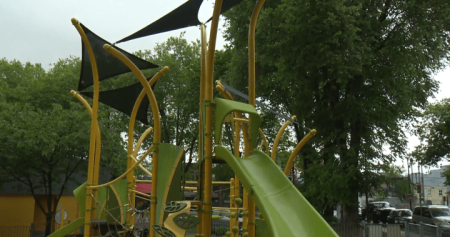Manitoba women still face a significant wage gap compared to their male counterparts, with women on average making $0.71 for every dollar a man makes. This sets women back three months on an annual basis, with racialized women earning even less. Indigenous women earn $0.58 on the dollar compared to a white man, and women of color earn $0.59 on the dollar. These numbers have not significantly changed in the past 30 years, contributing to Manitoba’s last-place ranking among all provinces for gender equality. The impact of this wage gap extends beyond just income, affecting poverty rates among women and their participation in the labor force, ultimately impacting child poverty rates as well.
A significant portion of minimum-wage workers in Manitoba are women, with 60% of them working in minimum-wage jobs. The current minimum wage is considered a poverty wage, falling below the living wage of $19.21 an hour. This makes it difficult for women working multiple jobs at minimum wage to improve their economic status and get ahead. To address the pay gap and the associated problems, measures such as creating thousands of new child-care spaces, raising the minimum wage to a living wage, and expanding education and training opportunities for women are needed. Additionally, measures to prevent discrimination, harassment, and violence in the workplace are necessary to promote gender equity.
According to a Probe Research poll, 78% of Manitobans agree that tougher pay equity laws are needed to ensure women are paid the same as men for work of equal value. The minister responsible for gender equity, Nahanni Fontaine, stated that the government is committed to ensuring equal pay for women. Discussions are underway, including jurisdictional scans and consultations with stakeholders, to potentially introduce legislation in the near future. Fontaine also referenced previous efforts, including the introduction of a pay transparency act during the NDP’s time in opposition, as well as announcements regarding increasing access to $10-a-day daycare. Manitoba was a leader in the 1980s for introducing pay equity legislation, but the legislation currently only covers the public sector, leaving the private sector behind in terms of addressing the wage gap.
The wage gap in Manitoba continues to be a pressing issue, with women still earning significantly less than men on average. Efforts to address the pay gap and associated challenges, such as high poverty rates among women, low rates of women participating in the labor force, and child poverty, require comprehensive measures. These include creating more child-care spaces, raising the minimum wage to a living wage, and expanding education and training opportunities for women to advance their careers. Legislative action to prevent discrimination, harassment, and violence in the workplace is also necessary to promote gender equity and ensure equal pay for women. The government is currently discussing potential legislation to address the wage gap and improve gender equality in Manitoba.















